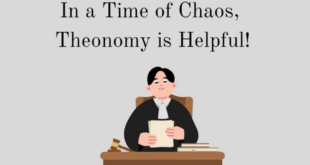Then Moses said, “Please, let me see your glory.” He said, “I will cause all my goodness to pass in front of you, and I will proclaim the name ‘the LORD’ before you, I will be gracious to whom I will be gracious, and I will have compassion on whom I will have compassion.” Exodus 33:18-19 CSB
What does it mean to see God’s glory? I think we all get this picture in our mind of a cloudy realm with a throne, very bright, gold altars, a bearded man, and little babies flying around (angels haha). In some sense, Isaiah saw something like that (minus the bearded man and babies) but this passage addresses pretty closely what we’re looking for.
“We have encountered that same God and do not honor Him..”
To set the stage in Exodus, God just freed the Jewish people out of 400 years of slavery to the Egyptians. Moses then meets with God on Mount Sinai and the rest of the people stay at the bottom of the mountain. Evidently, Moses and God are taking too long and the people demand a tangible god be built for them: the golden calf. God is ready to wipe these people out and they deserve it. It’s hard to imagine how they could possibly do this when they’ve literally just watched a sea part in front of them by the Living God, but we do very similar things in our own lives every day because we have encountered that same God and do not honor Him.
Nonetheless, Moses wants to see God’s glory. But what God says is amazing: “I will proclaim the name ‘the LORD’ before you, I will be gracious to whom I will be gracious, and I will have compassion on whom I will have compassion.” What does that mean? I believe there are at least two implications for us.
- God will proclaim the name YAHWEH. God’s love for His own name is amazing. If you don’t understand the concept of YAHWEH, please go back and read the articles “Who is God Part 1 and 2” that we wrote previously. God will see to it that His Name is hallowed as the Lord’s prayer states.
- God will be gracious to whom He will be gracious and have compassion on whom He will have compassion. God owes us nothing, just as He owed the Jewish people nothing in this section. We sin against God and rebel daily, we deserve destruction. So when He says “I will be gracious to whom I’ll be gracious and have compassion on whom I have compassion,” He is perfectly justified in doing so. How can we argue? So can an all-knowing, all-wise God choose those He will be gracious and compassionate to and still be righteous, holy, and loving? Absolutely. He is the only one that has the right to do that. God is not unjust by doing this because everyone deserves destruction. So by Him doing this, He is being merciful. This is amazing- understanding this concept is seeing God’s glory: understanding that seeing Him be gracious and compassionate on whomever He wills is seeing God’s glory.
This is tough theology, but so beautiful. This answers a lot of the difficult texts on election, predestination, etc. This text, to fast forward, is used by Paul in Romans 9 talking about election and God’s justice. If this is something you’ve wrestled with, keep wrestling. Don’t give up on this… Seeing God’s Sovereignty and Providence is seeing God’s glory. This is God’s ability to choose based on Himself and His perfect concepts of justice, mercy, grace, and love. That is God showing His glory, which is also Him showing mercy, compassion, grace, and love.
-Austin
 Getting Job-ed
Getting Job-ed


